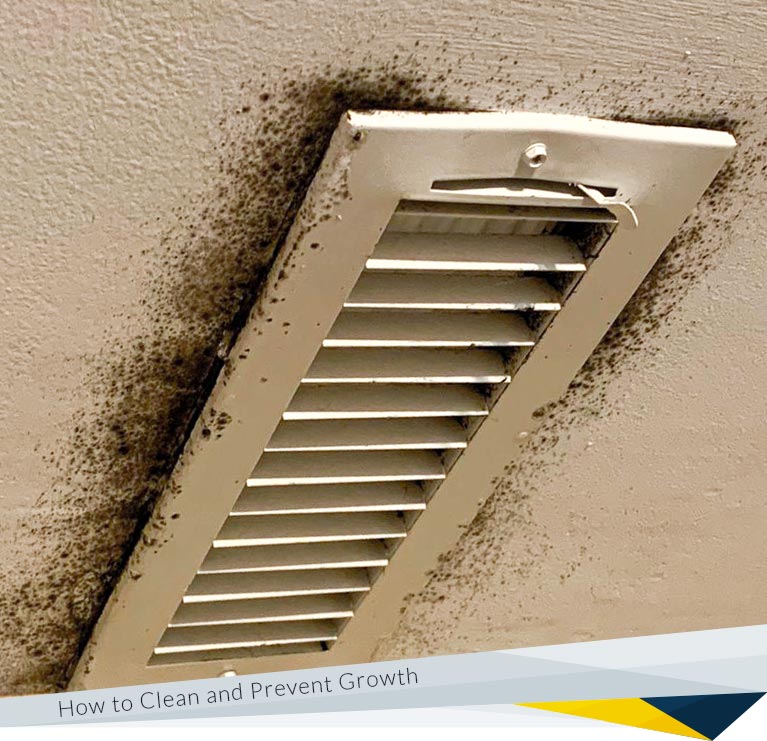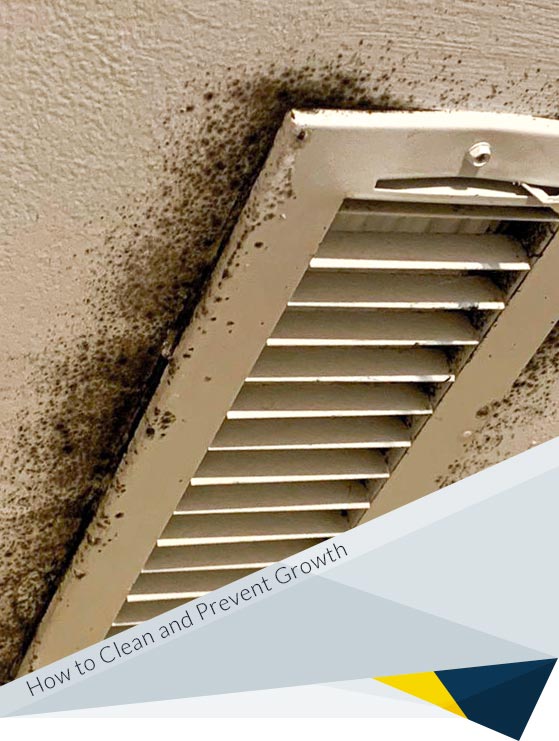
If someone in your home has a mold allergy, mold and mold spores can worsen the air quality there. Your air conditioner may contain mold, which is dangerous to your health and seriously damages the AC device. It is essential to clear it out as soon as you believe mold is present in your AC unit and get professional assistance to stop future development.
Before we get into further details about how to get rid of mold in air conditioners, it is essential to know what causes mold in the air conditioner. Let's dive deeper to know all about mold in air conditioners to deal with it most effectively.
In most cases, air conditioners are favorable environments for mold growth. Mold on styrofoam alone in the air conditioner does not have enough food. However, dust frequently gathers in these areas, which might promote mold growth.
Moisture and an organic food supply are the two requirements for mold growth. High humidity levels and a leak or spill that has not been adequately cleaned up both cause excess moisture. Since condenser and evaporator coils are the significant causes of condensation, they might leak water if not properly evacuated, providing the perfect environment for mold to thrive.
The main factors that contribute to mold in air conditioners are listed below.
The air conditioner eliminates moisture from indoor air. While doing this improves the comfort level in your house, it can also result in moisture condensation when air moves through the air conditioner. If you discover water leaks near your air conditioner, mold growth may develop. It may get worse if your home has high humidity levels. In order to prevent the formation of mold in air conditioners, it is advised to keep these levels low.
Dust and other indoor air pollution in your house can serve as the organic material mold require to grow. Most of these contaminants can pass through air filters and build up in the ducts or other parts of the system, which helps mold flourish.
The perfect range of temperatures for human comfort is where mold thrives. When combined with high moisture levels, these temperatures can promote mold growth. Additionally, temperature variations within your house contribute to the issue.
Mold in air conditioner units grows due to clogged condensate drains, which cause moisture to build up within the unit.

Although mold within air conditioners is not readily apparent, some symptoms can indicate it. You must be able to recognize the warning symptoms of a mold infestation in order to take immediate action.
There is a strong likelihood that black mold forms within air vents if you notice any black patches or dust accumulating. A moist, slimy appearance is another sign of black mold, and these dark areas are sometimes hard to remove.
The following are some mold in air conditioner symptoms that will enable you to determine whether mold is present in your air conditioner.
If you notice a musty odor smell from your cooling unit, which is intended to provide odorless air, you will know something is wrong. Mold emits an unpleasant odor when it is prevalent. The mold smell in the air conditioner is harsher and more potent when you switch on your air conditioner. It is the most obvious sign of mold in the air conditioner.
Mold in your air conditioner has the same appearance as mold outside. Black spots on the bathroom floor or in the basement indicate that mold has just been spread in your apartment. You may find mold in the air conditioner units, close to drip pans, beneath evaporator coils, and around vents.
Mold development can threaten your health and cause significant health concerns if it is not treated immediately. Most individuals experience persistent colds, coughs, watery eyes, difficulty breathing, itchy skin, and rashes. Some people have severe respiratory illnesses like pneumonia which need medical treatment. All of these health issues indicate the presence of mold.
There may be mold in the air conditioner, which calls for professional assistance.
It is alarming and dangerous for your health and home if mold is developing any place in the house. Anyone with allergies or a weakened immune system, such as young children or the elderly, may experience particular harm.
There is definitely cause for concern if you find mold in your air conditioner. Mold can produce easily inhaled spores if it is developing there.
Mold growth in an AC unit is not usually more dangerous than mold growth elsewhere in your house. A mold-infected air conditioner, however, would spread the spores all across the house or a room because it is designed to distribute cold air around a space. You will have a mold problem across the rest of the house rather than just in one area if the mold spore concentration is high enough, and even while you sleep, you will be inhaling mold spores.
Mold can cause irritation of the eyes, the throat, the nose, and, in certain circumstances, the skin. It can also induce coughing or wheezing. People who are allergic to mold may experience more severe symptoms. When exposed to mold, persons with weaker immune systems and those who already have chronic lung conditions like obstructive lung disease are at risk of developing life-threatening lung infections.
Your airways and lungs may become inflamed as a result of mold exposure. Additionally, it may exacerbate respiratory issues, breathlessness, and asthma symptoms that already exist. Fatigue, nausea, and dizziness are among the less frequent signs of mold exposure, and extreme symptoms can be fatal.
These symptoms typically appear when there is a considerable level of mold in your house. Therefore, you must address mold as soon as possible to prevent contracting these physical health concerns.
To completely get rid of mold, people use several techniques. People try to remove the visible mold with a brush, and spraying hydrogen peroxide immediately after mold discovery will work if the mold is small. However, it is only effective in a few places and is a temporary solution since mold may reappear.
You may also consider painting over the mold near the air conditioner, but this will not help you eliminate it or prevent it from growing. It can seem like a long-term mold removal solution to kill the mold. However, it might be challenging to identify the proper chemicals and techniques to kill mold, and it may be risky.
All these methods are accessible from the comfort of your home and can be a decent temporary solution, but they will not be helpful in the long run since mold will almost certainly reemerge. Therefore, you will require professional assistance to get rid of mold permanently.
To permanently remove mold, you may rely on our professionals. We will use necessary caution, locate the root issues, and address them appropriately.
The professional team will conduct a mold inspection to determine the underlying causes and the affected regions. A sample of the air or a surface will be taken for mold testing once an illness has occurred. Knowing what kind of mold is in your air conditioner will be helpful. When everything is accomplished, mold remediation will be carried out.
Mold remediation is one of the most effective methods to ensure the mold is removed and will not reappear. In contrast to killing or cleaning the mold, it deals with the issue at its source to guarantee that it does not come back. Additionally, mold remediation successfully eliminates molds that cannot be seen, such as airborne spores, which other methods cannot do.
Follow the below precautions to prevent mold in the air conditioner:
Conduct regular maintenance. Make sure no situations might allow mold to grow by hiring specialists to inspect. The expert will be able to drain out your condensate drain line during the consultation to avoid blockages and remove dust accumulation that might encourage mold growth and reduce the effectiveness of your air conditioner.
Embrace a regular cleaning routine. The interior of your ductwork may become coated with dust, pollen, hair, and other contaminants over time, decreasing indoor air quality and becoming a food supply for mold spores. You might be able to stop mold growth by cleaning.
Improving ventilation will typically stop mold from coming back, or at the very least, keep it to a minimum. Ensure that your home has free movement of air. Use exhaust vents that blow outside. Less moisture would prevail due to increased ventilation, and less moisture prevents mold growth.
A dehumidifier might also be helpful. It lessens the likelihood of mold formation by reducing moisture from the environment, which makes it less favorable for mold growth.
FDP Mold Remediation is the ideal choice if you are disturbed by the health risks of mold in air conditioners or the unpleasant smell and appearance of mold and are searching for a practical, long-term remedy. FDP Mold Remediation offers effective mold inspection, testing, and treatment services.
Our team of experts has years of experience delivering these trustworthy and skilled services. The best way to remove the mold is determined by our staff's mold inspection, followed by rigorous mold testing procedures to identify the best cleaning solution. You may rest assured that FDP Mold Remediation will simply eliminate the mold after taking on the task.
You can rest assured that all the mold will be remediated from your home after handing over the task to FDP Mold Remediation. Call us for a quick phone consultation - 877-421-2614.



